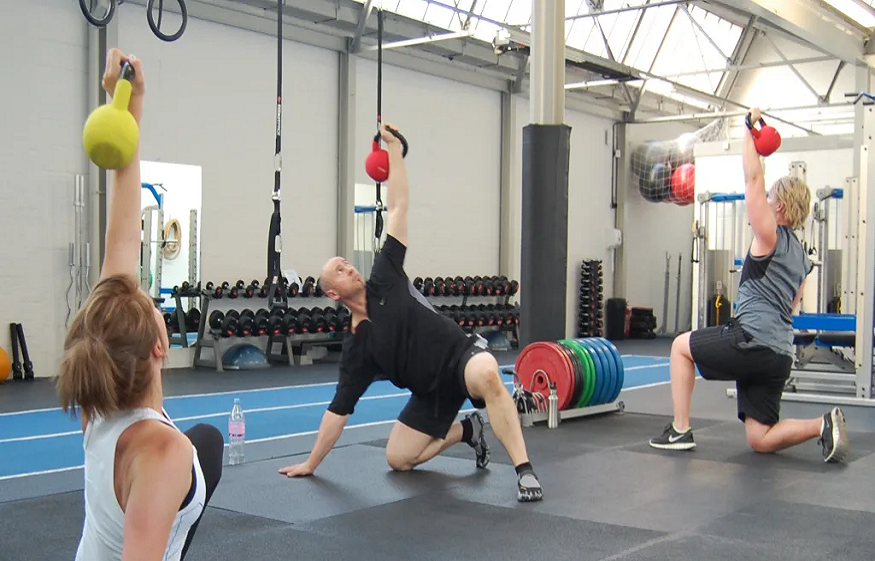Finding the Best Personal Trainer – Get Real Results

When you set out on a fitness journey, one of the most critical decisions you can make is hiring the right personal trainer. The best personal trainer can elevate your workouts, keep you motivated, and tailor your fitness program to your specific goals—whether that’s weight loss, muscle gain, injury recovery, or improved overall health.
However, not all trainers are created equal. From qualifications to personality compatibility, there are many factors to consider before committing your time and money. In this guide, we’ll walk you through everything you need to know to find a personal trainer who is right for you.
Why Hire a Personal Trainer?
Before diving into how to find the best trainer, let’s address why hiring one is worth considering:
Expertise and Knowledge: Personal trainers are educated in exercise science, human physiology, and nutrition. They can help you avoid injuries and ensure you’re performing movements correctly.
Accountability: Consistency is key in fitness. A trainer provides structure and holds you accountable, making it more likely you’ll show up and put in the effort.
Customization: Everyone’s body and goals are different. A good trainer will create a personalized workout plan tailored to your specific needs.
Motivation: It’s easy to fall into a rut. A trainer brings energy, encouragement, and challenges that push you beyond your comfort zone.
Step-by-Step: How to Find the Right Personal Trainer
1. Define Your Goals
Do you want to lose 20 pounds? Train for a marathon? Build muscle? Improve flexibility or balance?
Clarifying your goals helps you find a trainer who specializes in your area of focus. For instance, someone recovering from an injury may need a trainer with a background in physical therapy or corrective exercise, whereas an aspiring bodybuilder may seek someone with strength training experience.
2. Look for Credentials and Certifications
- Reputable certifications from organizations such as:
- NASM (National Academy of Sports Medicine)
- ACE (American Council on Exercise)
- NSCA (National Strength and Conditioning Association)
- ACSM (American College of Sports Medicine)
…ensure that the trainer has received formal education and adheres to industry standards. Don’t hesitate to ask about their qualifications.
3. Experience Matters
Ask about their background and client history. How long have they been training clients?
For example, if you’re a busy professional in your 40s trying to build endurance, you may want someone who has worked with similar demographics. Experience often leads to better intuition about what works for different individuals.
4. Assess Compatibility and Communication
A good personal trainer isn’t just a fitness expert—they’re also a coach, mentor, and sometimes a bit of a therapist.
During an initial consultation or trial session, ask yourself:
- Do they listen to my concerns and goals?
- Are they supportive and enthusiastic?
- Do I feel comfortable around them?
Communication style, energy level, and even their approach to motivation (gentle encouragement vs. drill-sergeant intensity) can make a huge difference.
5. Check Reviews and Referrals
Word of mouth is powerful. Ask friends or colleagues for recommendations. Online reviews, testimonials, and social media can also provide insight into a trainer’s reputation and client satisfaction.
Look for reviews that mention the trainer’s punctuality, professionalism, effectiveness, and personality. Consistent positive feedback is a great sign.
In-Person vs. Online Trainers
With the rise of virtual coaching, you have more options than ever. Both formats have their pros and cons.
In-Person Trainers
- More hands-on guidance
- Access to gym equipment
- Real-time corrections
Online Trainers
- Greater flexibility
- Often more affordable
- Broader choice of specialists
Some trainers even offer hybrid models—combining in-person sessions with digital check-ins or custom plans.
If you’re located in Texas and want hands-on, personalized coaching, consider hiring a personal trainer in Dallas. A local expert can offer face-to-face sessions, access to high-quality equipment, and a better understanding of community resources and events.
Red Flags to Watch Out For
While there are many great trainers out there, it’s important to be cautious of these warning signs:
- Lack of Certification: A trainer without formal credentials may not have a thorough understanding of anatomy, safety, or program design.
- Cookie-Cutter Workouts: Every client is different. If your trainer gives the same routine to everyone, they’re not personalizing their approach.
- Pushy Sales Tactics: Upselling supplements or pushing you to sign a long contract without time to evaluate is a red flag.
- Poor Punctuality or Communication: A good trainer respects your time and communicates clearly and promptly.
- Ignoring Medical Conditions: Trainers should always ask about injuries, medications, or health concerns before starting a program.
Questions to Ask During Your Initial Consultation
Use your first meeting as a chance to vet your trainer. Here are some questions to consider:
- What is your training philosophy?
- Can you provide a sample workout or trial session?
- How do you track progress?
- What’s your cancellation/rescheduling policy?
The answers will give you a sense of their professionalism, flexibility, and methodology.
Price and Package Options
Personal training rates vary significantly based on location, experience, and training format. On average, you can expect:
- Individual sessions: $50–$125 per hour
- Group sessions: $20–$50 per session
- Online coaching: $100–$300 per month
Don’t just go for the cheapest option—consider the value you’re getting.
Maximizing the Benefits of Personal Training
Once you’ve found the right trainer, here’s how to make the most of your investment:
- Be Consistent: Stick to your schedule and show up ready to work.
- Communicate Openly: If something isn’t working or you’re struggling, let them know. Adjustments can be made.
- Follow Their Advice: Fitness doesn’t end when the session does. Nutrition, sleep, and stress management are also part of the picture.
- Track Your Progress: Celebrate wins, no matter how small. It keeps you motivated and shows that your hard work is paying off.
Final Thoughts
Finding the best personal trainer requires some time and effort, but the payoff is well worth it. You’re not just hiring someone to count your reps—you’re partnering with someone who will guide you, push you, and help you become the healthiest version of yourself.
Take the time to define your goals, research, and find a trainer who checks the technical boxes and makes you feel supported and inspired. Whether new to fitness or looking to reach the next level, the right trainer can make all the difference.






